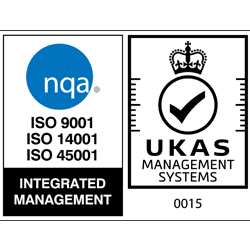Abandoned Product Policy
GES Group (Grants Electrical Services Ltd.) strives to offer customers the best service possible by making considerable efforts and investments in our Policies, Procedures and Processes to improve our Management Systems and our customers’ experience.
Abandoned customer goods, from this point referred to as “Abandoned Products”, have become an increasing problem for GES Group, and one that cannot be tolerated by a lean manufacture and process-driven organisation. As a result, we have implemented this “Abandoned Product” Policy to highlight the steps we will take should customer product be abandoned on our sites.
Our “Abandoned Product” Policy means if a customer’s product e.g. a motor, is brought to one of our Workshops for repair, and is “abandoned” by the customer for a period of 90 days (from the date we received the item), GES Group will recycle, or otherwise dispose of or sell the item as a loss recovery measure, to recover the cost of repairs carried out and labour time already spent on the equipment, etc.
“Abandoned” in this instance means that GES Group will make “every reasonable best effort” to contact the customer by telephone, letter and email (where such methods of contact are available) during the 90 day period, and if after this time, we have received no response from the customer regarding the item we will implement this “Abandoned Product” Policy and Procedure. Adequate information regarding this Policy will be made available for our customers and a copy can be viewed or requested at any time.
Under the Torts (Interference with Goods) Act 1977, customers who leave goods with GES Group for repair are under obligation to collect them, and we are entitled to dispose of/sell the goods if they remain uncollected and are not otherwise the subject of a dispute. Before GES Group can dispose of/sell “Abandoned Product” we must:
1. Send the owner of the goods written notice of:
Their obligation to collect the goods
Details of where the goods are to be collected and the address at which they are held
GES Group’s Head Office address and contact details
Details of any sum of money owing in respect of the goods at the time the notice is sent (e.g. repair charges, storage costs etc.)
This notice may be delivered directly to the owner, left at his/her proper address or posted to his/her proper address. The ‘proper address’ means, in the case of a limited or public limited company, the registered office or principal office; in any other case, it is the last known address of the owner.
2. If the notice does not result in collection of goods, we will send the owner, by recorded delivery/registered letter:
The same information as in the notice above, plus
Notice of our intention to dispose of/sell the goods if they remain uncollected, and the date of the intended disposal/sale
It is acceptable for both of these notices to be sent at the same time, as long as both notices are sent by recorded delivery/registered letter. The owner of the goods will be given 90 days from the date of posting of the second notice to reclaim the goods and settle their account. If the owner still does not collect the goods by the date stated in our second notice, we are legally permitted to dispose of/sell the goods and pass “good title” to any purchaser.
GES Group’s main objective of disposing/selling “Abandoned Product” is to recover the costs incurred by the Company (such as labour, materials, advertising costs for the sale, storage costs, etc.). After Company costs have been recovered, if there is any amount remaining, this will be sent to the previous owner of the goods. If for any reason GES Group cannot contact the previous owner, the funds from the sale will be held for a period of six years, after which time the previous owner will be statute barred from suing for any proceeds from the sale, and the Act is not retrospective.
This Policy has been created and implemented to ensure clear lines of communication with our customers, and we appreciate their understanding and co-operation in this matter. Further information, advice and guidance can be sought from Citizens’ Advice Bureau (CAB).




